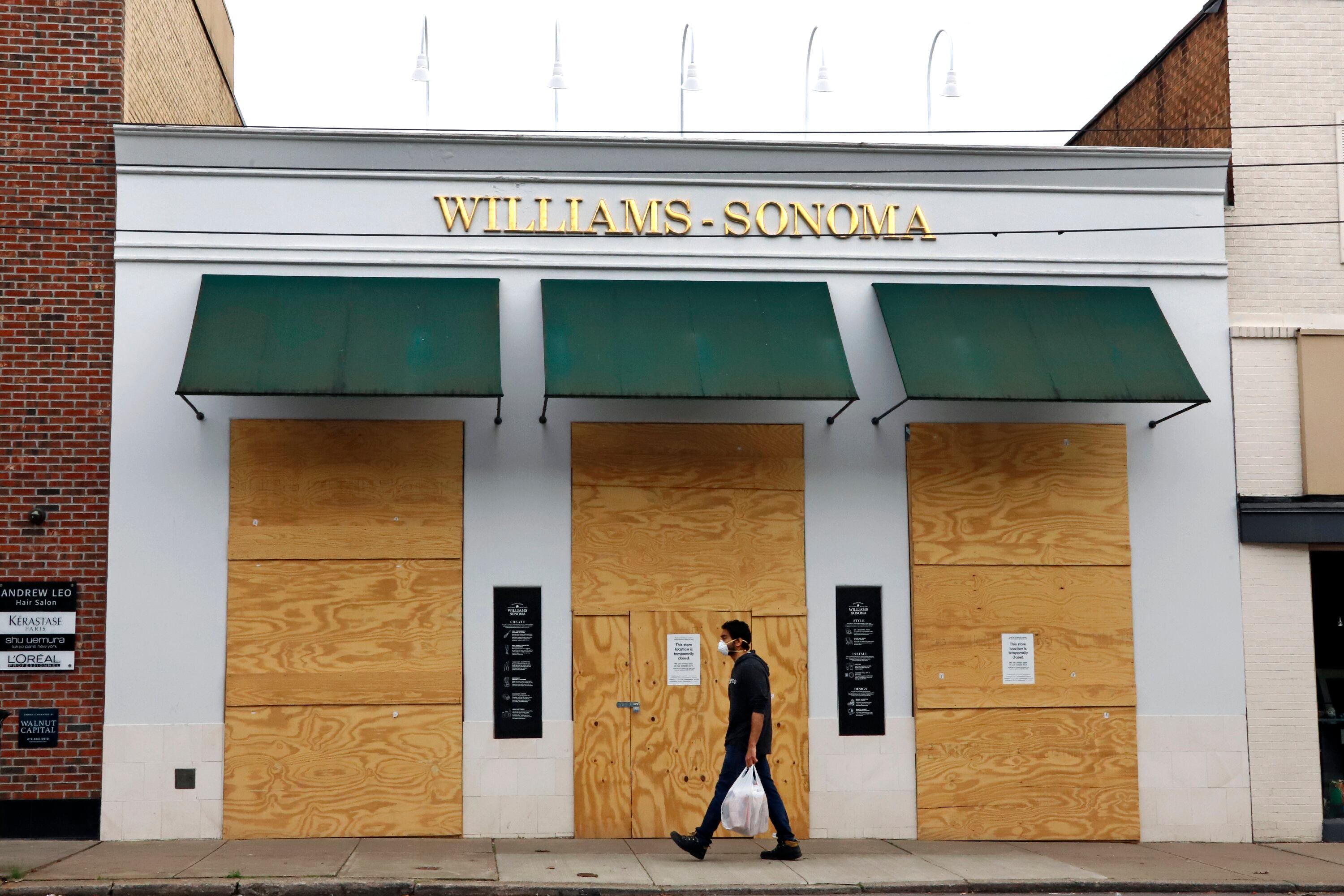From Wall Street to Silicon Valley, these are the top stories that moved markets and had investors, business leaders, and entrepreneurs talking this week on Cheddar.
MONTHLY GAINS, MONTHLY LOSSES: It was an odd sight, even for this odd time. On Thursday, the Labor Dept. reported another 3.8 million people filed for unemployment the previous week, bringing the total number of job losses to more than 30 million in the last six weeks. A day earlier, GDP data showed that the economy shrank in the first quarter at a rate of 4.8 percent, the biggest contraction since the Great Depression. And consumer spending for March showed its biggest decline on record. At the same time, the stock market closed out April with a bang, with the S&P notching its best monthly gain since 1987. Put another way, the stock market just had its best month in decades at the same time the labor market had its worst month — possibly ever — amid the backdrop of a rapidly contracting U.S. economy. The April investor optimism is not carrying over to May; stocks were down sharply at the end of the week after President Trump threatened China with new tariffs.
TECH EARNINGS: The other major driver for markets this week was a slew of corporate earnings, including reports from big tech names like Apple and Amazon. That’s also partially why stocks ended the week on a down note after investors had a chance to chew through the numbers. What they showed: no company, no matter how well-positioned, is immune from the effects of the coronavirus. Amazon posted monster Q1 revenues — $75 billion in net sales — but still missed on profit due to higher expenses related to the pandemic. Apple reported flat revenue and declined to offer guidance for the first time since 2003. Microsoft’s numbers were better than expected — a sign that its B2B offerings are proving resilient. And while Alphabet and Facebook reported huge spikes in the use of their services, the effects of the collapse in the advertising market were apparent, eating into their profits.
STREAMING WARS: Trolls: World Tour is weaving a path of destruction across America. NBCUniversal CEO Jeff Shell told the WSJ that the VOD numbers for the Trolls sequel were so strong — the movie made more money in three weeks of home viewing than the original did in five months in theaters — that he expected premium VOD to be part of the studio’s release strategy moving forward. That upset the theater chains, with AMC shooting back that it wouldn’t show any Universal films in its cinemas, and Regal reiterating a policy that it will not show films that “fail to respect” the theatrical window. Shell softened his comments on the Comcast earnings call, saying on-demand would be “complementary” to a theatrical run for major releases. The tit-for-tat came as the Academy of Motion Picture Arts & Sciences announced it would loosen eligibility rules for next year’s Oscars, given that few films are likely to be premiering in theaters anytime soon. Films that had a planned theatrical release but had to cancel it and were then released digitally will be eligible for Oscar gold in 2021.
MEAT SHORTAGES: The nation’s meat supply is in peril, and “spot” shortages of fresh beef, pork, and chicken are expected imminently in some parts of the country. The pandemic has severely impacted the pipeline that gets meat from the slaughterhouse to the butcher counter. Tyson Foods took out full-page ads in three major newspapers last Sunday warning that “the food supply chain is breaking.” The largest meat processors — Tyson, Smithfield, Cargill, and JBS — have closed facilities over coronavirus outbreaks. To make matters worse, farmers are stuck with an overflow of livestock that can’t be sent to slaughter, forcing them to cull their herds. President Trump signed an executive order to classify meat processing facilities as “critical infrastructure” under the Defense Production Act, but the order does nothing to compel those plants to be operational. Meatpacking lines have become hotbeds for coronavirus outbreaks, and more than a dozen had been closed at some point, reducing capacity by as much as 25 percent.
HOPES PINNED ON REMDESIVIR: Gilead Science’s antiviral drug remdesivir is now the coronavirus treatment to beat A government-sponsored, scientifically rigorous trial has found that COVID-19 patients who are given remdesivir are more likely to get better, faster. Dr. Anthony Fauci, the country’s top infectious disease expert, called the new data “significant” and “positive” and said remdesivir sets the first “standard of care” for this virus. The FDA is reportedly planning to issue emergency approval for the Gilead drug as soon as next week, which would allow it to become more readily available for patients suffering from the disease. But the potentially best news in weeks on the medical front wasn’t enough to lift shares of the biotech firm. Gilead stock fell 6 percent Friday after it was hit with a handful of analyst downgrades over questions about the drug’s revenue potential.













